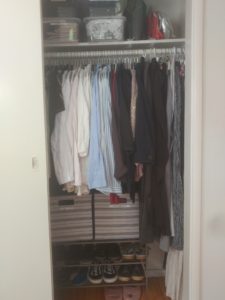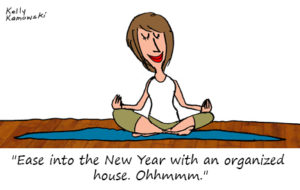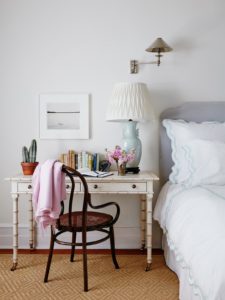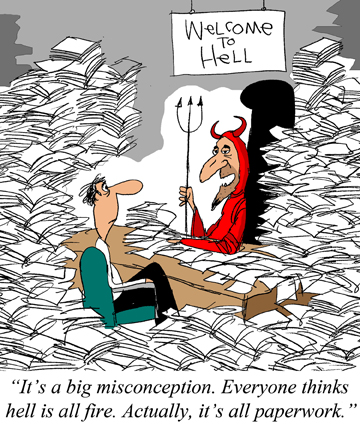Recently I learned about something called the Intention-Action Gap. The intention-action gap is a term used by people, mainly behavioral experts, who study the reasons why we do or don’t do things that are good for us.
In simple terms, the intention-action gap refers to the difference between what people say they would like / plan to do and what they actually do. For example, people say they want to get organized, or lose weight, or get more exercise or eat healthier but they don’t.
Behavioral experts explain this “gap” between our intentions and our actions in several ways but recently I came across an article written by Ozoda Muminova, a London-based researcher, business and organizational consultant who helped me understand this disconnect between what we want and what we actually do in a delightful and amusing way.
Basically she said that as humans there are certain barriers to changing our behaviors. Things like, habit, unknown impact, feeling isolated and overcoming difficulty. Her answer, in short: make it fun, make it social, make it personal and make it immediately rewarding.
Ozoda created this simple model to explain how to meet every barrier to change, with an enabler of change:

5 steps for turning good intentions into good behaviours. Used by permission of The Good Insight/Ozoda Muminova
I got to thinking about this in the context of why so many of us, myself included, really want to achieve a certain goal like losing weight, exercising more and even getting organized, but can’t follow through. You may start but within a moment you find yourself procrastinating or putting it off again.
Inspired by these ideas of challenging each barrier with a positive enabler, consider this simple 5 step approach to changing old habits that get in the way of your happiness.
For every barrier you have to your goal, whether it be losing weight, exercising more, getting more organized or something else, do what you can to make it fun, make it relevant to you personally, make it possible to see change immediately so you’ll keep going, make it social, that is, look for evidence that others are doing it too and make it rewarding!
Let’s say you want to organize your closet. Here’s an example of how you could apply this simple plan to get it done!
1. Make it fun
Play your favorite upbeat music or ask your best (most fun) friend to help you. Put on your most colorful and silly clothes to get you inspired or set up sturdy bins and practice your awesome basketball dunk or free throw for those items you are sending to donation. The point is, if you make it fun and easy you are more likely to get it done.
2. Make it personally relevant
Be clear about why you are getting organized, in other words ask yourself, what’s in it for me? Will you enjoy being able to see your newly organized closet? Will it make it easier for you to find what you need when you need it? Will it make you feel good about yourself and what you’ve accomplished? If you can equate the task to something meaningful to you – my discarded stuff could help others, getting dressed in the morning will be easy and fun, I will feel good about showing off my home to my friends – you are more likely to get it done.
3. Look for immediate change
Next consider a plan for how to see change immediately. I recommend breaking the task into smaller pieces . Instead of attacking the entire closet, start with just the top shelf or one side before tackling the rest. Psychologically, we are motivated to continue once we see small changes. If you are tackling a larger space, clear off a surface – the floor or a table – as you are more likely to continue when you see clear space versus something you can’t see such as a drawer. Remember you can only climb a flight of stairs, one or maybe two, steps at a time. The point is you’ll still get there.
4. Make it social
If you are unable to enlist the help of your family or friends (or if you don’t want to), consider that you are not alone in your desire to get organized. The popularity of people like Marie Kondo and The Container Store are evidence of the trend in organizing. Why not set up a challenge with an online friend or find a virtual room for other like-minded people to share your progress with on social media sites such as Facebook, Instagram, Pinterest or FlyLady.net. You could also arrange to have an “accountability” partner. This is someone you know who you can report your progress to with no judgement. I often do this for my clients.
5. Make it rewarding
Finishing an organizing project is its own reward. I know the satisfaction I feel when I complete a large organizing project for a client and sometimes I want to celebrate my accomplishment with my crew. We may go out for dinner or to a local tap room for a beer or I may just go home and take a luxurious hot, bubble bath.
The intention-action gap explains why we can’t overcome our resistance to change or existing habits. Understanding the 5 barriers to change and replacing them with these 5 “enablers” of change can turn bad habits into new behaviors that lead to a happier and more satisfied life.
I believe getting organized is about making room in your life for what you enjoy the most. So now that you’re done, go do something just for you or do it with others so you can celebrate your success together!












